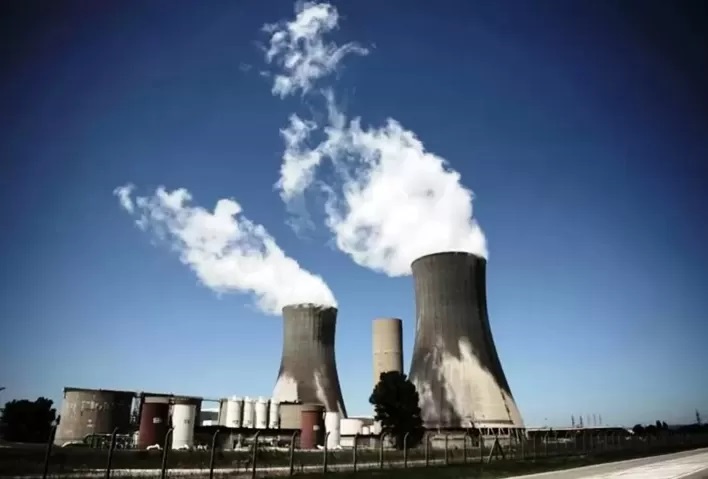News
Uranium reserves from Melawi could transform national energy prospects
WINDONESIA May 26, 2025 An NPP. (Prokal.co)
An NPP. (Prokal.co)
Uranium reserves in Kalan River, Melawi Regency, West Kalimantan Province, have the potential to transform the prospects of national energy security.
Tanjungpura University Agro-Industrial Chemistry Professor and Islamic Boarding School Businesses Economic Association (HEBITREN) West Kalimantan Regional Management Board (DPW) Chair Thamrin Usman stated that uranium from Melawi Regency is not just a mineral commodity, but a strategic asset for green industrialization based on nuclear energy.
"With a wise and responsible approach, uranium can be a catalyst for sustainable development through nuclear power plants (NPPs), which will have a direct impact on industrial downstreaming and economic transformation in West Kalimantan," he said.
Uranium reserves in Melawi, if developed, can produce electricity up to tens of thousands of gigawatt-hours per year. That figure is enough to supply all of West Kalimantan for tens or even hundreds of years. One kilogram of uranium-235 is equivalent to 3,000 tons of coal in energy output, making it the most energy-dense clean energy source available today.
Conservative simulations show that four reactors with a capacity of 1,000 megawatt electrical (MWe) can provide 4,000 MWe of power, or almost three times the current electricity consumption of West Kalimantan - which is around 1,500 MWe.
"With such efficiency, we can have a surplus to drive downstream industries such as fertilizer, methanol, and mass electric vehicles (EVs)," Thamrin continued.
Development of NPPs also opens the door to the production of green hydrogen through water electrolysis with zero emissions. The oxygen byproduct can be used for the medical and industrial sectors, while hydrogen can be combined with nitrogen to produce ammonia and urea. This can reduce dependence on fertilizer imports.
Thamrin assessed that West Kalimantan has several strategic points for the construction of nuclear reactors, including the Small Modular Reactor (SMR). Regions such as the regencies of Mempawah and Kubu Raya have ideal access to seawater for reactor cooling, while the regencies Sambas, Bengkayang, and Ketapang are suitable for the development of nuclear energy-based industrial zones.
"The availability of cheap and stable electricity from NPPswill attract investors to build cement factories from red mud, to converting CO₂ from the Sambas-Natuna Block into methanol and value-added chemicals," he explained.
Amid the global push for decarbonization, uranium from Melawi offers a domestic solution for reducing CO₂ emissions and substituting coal.
In addition to environmental benefits, the development of a nuclear energy ecosystem is also expected to create thousands of jobs in the energy, chemical, and manufacturing sectors, as well as increase food security through local fertilizer production. Thus, Thamrin emphasized that the use of uranium from Melawi Regency must immediately be included in the national strategic agenda.
"It takes commitment from the central government, collaboration in nuclear technology research, and synergy from the private sector so that West Kalimantan is not only an energy barn, but a clean energy-based economic motor in Indonesia," he concluded.

